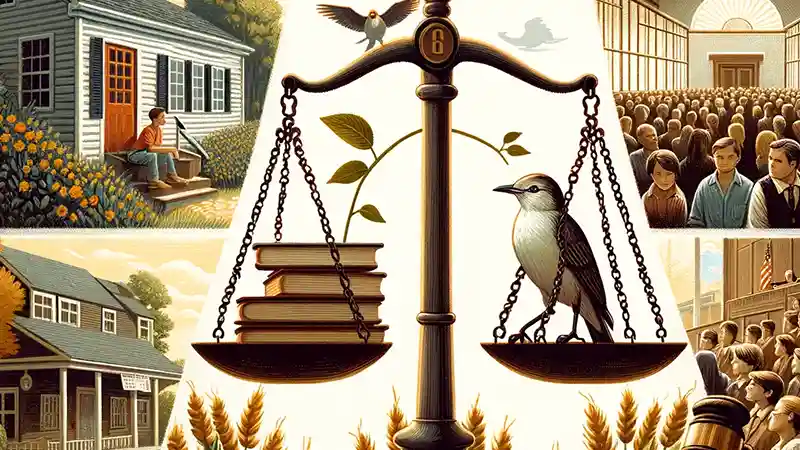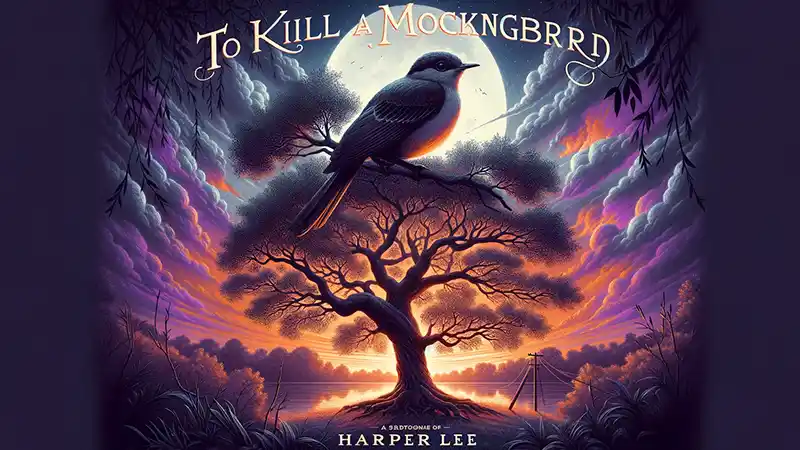In To Kill a Mockingbird Chapter 26, Harper Lee revisits the enigmatic character of Boo Radley, intertwining his story with the aftermath of the Tom Robinson trial. This chapter serves as a pivotal moment for character development, particularly through Scout’s changing perceptions and the community’s complex moral landscape. This lesson will explore these shifts through group discussions, culminating in mini-presentations that will deepen our understanding of the novel’s themes and characters.
Learning Goals
- I will be able to analyze the role of Boo Radley in the novel and identify connections between his subplot and the Tom Robinson trial.
- I will be able to examine the townspeople’s conflicting attitudes towards justice, Atticus, and his family, and articulate the societal implications.
- I will be able to present this information to the class.
Materials
Process
- Read To Kill a Mockingbird Chapter 26.
- Assign a question from the following list to partners or groups of 3.
- After students have a chance to answer the questions, have them present their answers to the class. This can be done informally or with very short slideshows.
Chapter 26 Questions
- Harper Lee reintroduces Boo Radley into the novel in this chapter. What role has he played in the story so far? Is there any connection between the Boo Radley subplot and the story of the Tom Robinson trial so far in the book?
- How are Scout’s fantasies about meeting Boo Radley different now than they were earlier in the novel? How have her feelings about the Radley house changed? How do you explain these changes? What evidence can you find in this chapter to explain them?
- How do you explain why the townspeople continue to support Atticus and his children while at the same time seeming to approve of the guilty verdict? What does it suggest about the way the people in Maycomb think about justice?
- How does Miss Gates explain why Hitler is able to treat Jews so poorly in Germany? What irony is exposed in her explanation? What is she forgetting or ignoring? Why do you think Harper Lee chose to include this current events lesson in the novel? What point was she making?
- How does Scout define democracy? Do you think her definition is satisfactory? Would you add or change anything?
- Why is Scout confused when Miss Gates explains, “Over here we don’t believe in persecuting anybody. Persecution comes from people who are prejudiced”? What is ironic about Miss Gates’s explanation?
- Why does Jem respond so angrily when Scout brings up the courthouse? How does Atticus explain his behavior?
- How is Jem’s forgetting similar to Miss Gates’s forgetting? How is it different? What role does forgetting play in allowing us to live our daily lives and be “ourselves”? When is forgetting dangerous?


